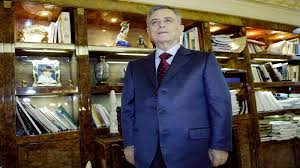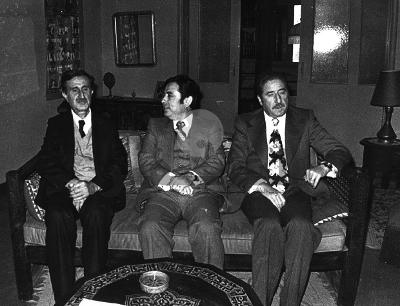After the speech delivered by the butcher Bashar al-Assad on the sixth of this month, which included severe campaigns against the Syrian people, their revolution, and against the Arab and foreign countries that condemned him and called for the overthrow of his legitimacy, many wonder about the reasons for the military escalation and then the political escalation in the behavior of the tyrant Bashar al-Assad at a time when many countries are calling for a political solution, even though any political solution will be in his favor.
In reality, what encouraged the tyrant Bashar al-Assad to escalate militarily and use all kinds of weapons, including chemical weapons, followed by political escalation, is his belief that the Arab countries that played a significant role in forming the international military coalition against Muammar Gaddafi will not act as they did in the Libyan crisis.
Furthermore, the major powers that formed the coalition in the Libyan crisis will not come together to form a military coalition to rescue the Syrian people. Therefore, both military and political escalations aim to exert all forms of pressure on the revolution and the Syrian people to accept working within the framework of solutions that preserve his regime.
The choice of escalation was not Bashar al-Assad’s choice but rather the choice of the tripartite alliance of Iran, Russia, and the regime, as both countries have strategic goals in Syria and the region.
Iran is working to solidify its influence in Lebanon, Syria, and Iraq, in addition to extending its influence in Bahrain, Yemen, and some Gulf countries.
Russia, aspiring to reclaim its role as a major power, has a significant interest in this alliance that restores its influence in Syria. Additionally, its alliance with Iran allows it to overlook the Arabian Gulf and the Indian Ocean, as well as Central Asia.
It is noteworthy in this context that the international mediator, Lakhdar Brahimi, is determined to continue his mission despite Bashar al-Assad’s recent statement claiming the end of this mission.
The call by the UN envoy Lakhdar Brahimi to implement the Geneva agreement, which does not target Bashar al-Assad but aims to form a government with representatives from both the regime and the opposition, reveals the danger surrounding Syria and its people’s future.
It is also noteworthy that a team from the Syrian opposition has announced its acceptance of Lakhdar Brahimi’s initiative, which includes forming a transitional government without Bashar al-Assad. However, the opposition has not specified who will form this government, and it has not taken into account that accepting this initiative may lead to the regime’s continuity and Bashar al-Assad’s return to power if he agrees to step down.
The formation of a coalition government did not take into consideration that the pro-Assad faction in this government would obstruct it and prevent any measures against Bashar al-Assad and his regime.
The myth of untainted hands, as an entry point to a solution that ends the revolution, sacrifices the blood of the martyrs without realizing the danger it poses to the country’s future. If there are individuals in the regime with clean hands, let their names be presented to the Syrian people, as the people alone are the decision-makers.
O sons of Syria,
Those with good intentions are often misguided to hell, so beware of those who claim to have good intentions in proposing solutions that do not serve the Syrian people and their revolution.
You, the Syrians, have struggled for freedom, justice, and the right to self-determination, not for stages that increase the losses of the Syrian people.
You have stood against the aggression of a ruthless oppressor, and you have succeeded in strengthening your path. Victory is coming, God willing.


